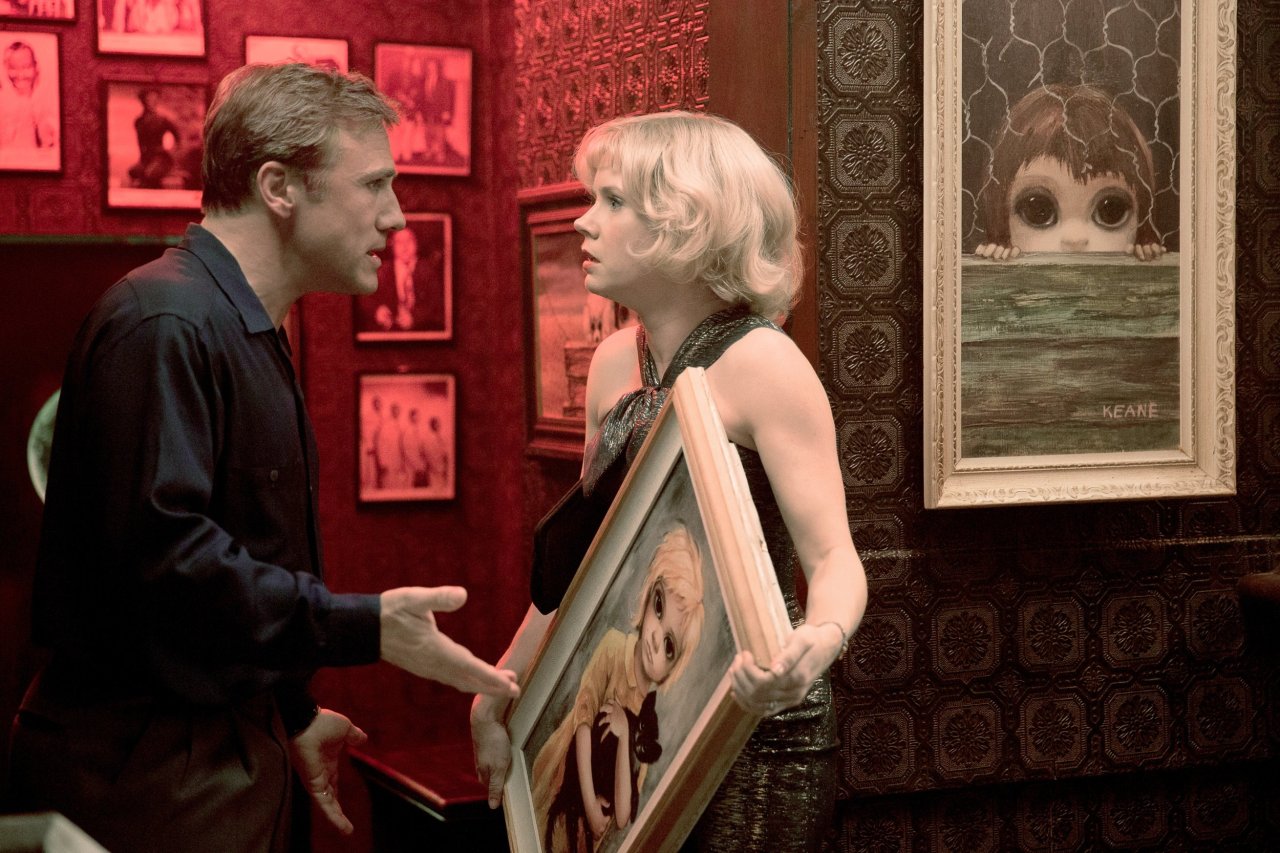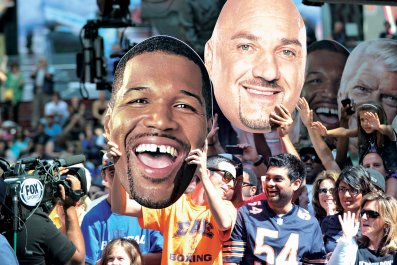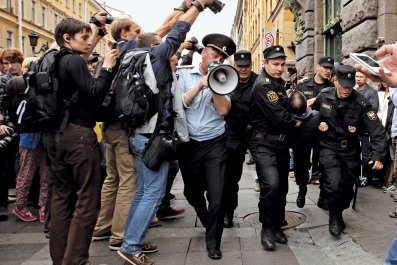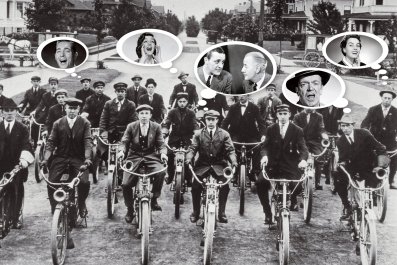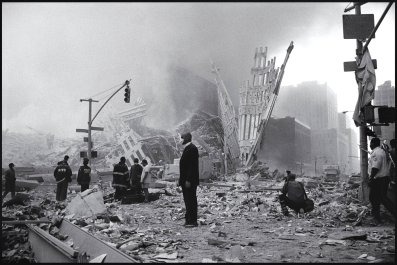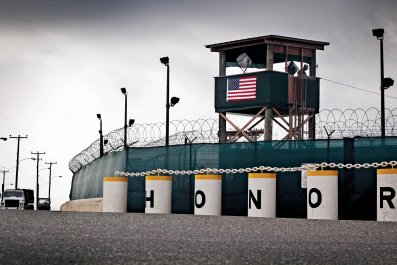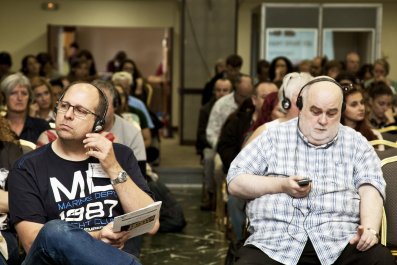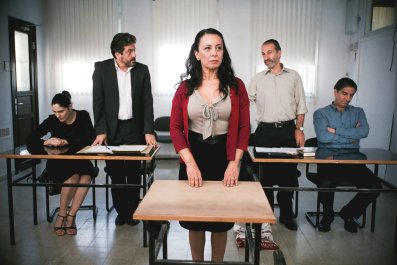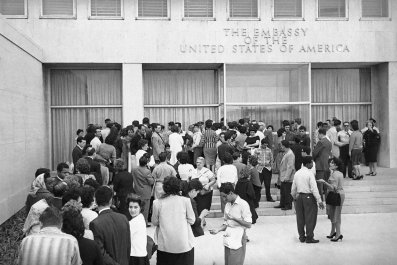Critics normally work anonymously and in the dark. But in two new major movies they are highly visible – and it may not make for a pleasant watch. In the Oscar-tipped Birdman, an ex-Hollywood hero (played by Michael Keaton) is starring in a Broadway play. He sees the New York Times theatre critic in a bar. Their eyes meet and the sour female theatre critic says with unblinking iciness: "I am going to kill your show." It's a scary moment because she hasn't yet seen the play in question.
There's a smaller cameo for another New York Times reviewer in Tim Burton's new film, Big Eyes, about the art fraudster Walter Keane. This time he is based on a real reviewer, John Canaday, who was the paper's art critic in the 1960s. Keane (played by Christoph Waltz) posed as the painter – his wife, secretly, was the real artist – of a huge output of highly sellable pictures featuring children with big soppy peepers. Canaday sees the paintings as sickly rubbish. The artist threatens to gouge the critic's eyes out with a fork.
Playing a lethal critic is specialist work, and in both films the producers chose British actors. Lindsay Duncan in Birdman is the Broadway butcher with ice in her veins. In Big Eyes, veteran actor Terence Stamp has a cameo as the dapper scribe dripping with condescension. Their screen predecessor was another British actor, the great George Sanders, whose performance as the super-cynical Addison DeWitt in the 1950 backstage movie classic All About Eve is the benchmark for all critic baddies. His serpentine creature is a closeted, cologned operator of the sort that has never really existed.
You wonder whether at this rate we will ever get a mainstream feature film devoted to a critic. The most colourful prospect would be Kenneth Tynan, patron saint of theatre reviewers and a true legend. Dead at 53, the stammering, dandyish columnist – keen on bedroom spanking – was the first person to use the f-word on television and he kept on his Observer desk the stirring motto: "Rouse tempers, goad and lacerate, raise whirlwinds."
Tynan's reviews were adored simply because he wrote such grabbingly good copy. When necessary he was merciless, spectacularly to Vivien Leigh, who starred opposite her husband Laurence Olivier. Of her Lavinia in Titus Andronicus, Tynan wrote: "Vivien Leigh receives the news that she is about to be ravished on her husband's corpse with little more than the mild annoyance of one who would have preferred Dunlopillo."
During his brief career Tynan ushered in angry, un-posh writers like John Osborne, author of Look Back in Anger and a loather of critics. By the end of his career, Osborne had barred Nicholas de Jongh of The Guardian from his funeral; referred to Jack Tinker of Daily Mail as "Ms Tinker"; and after a bad review sent a threat to Benedict Nightingale of The Times, warning him: "Safer for your health to stay clear of downtown Chichester," adding, "Fatso Morley's next!"
"Morley" was the late Sheridan Morley, a critic and biographer who in later years slept through everything he attended. After his death, his wife admitted in print to writing the copy herself under his byline. You couldn't make it up. But she actually did.
In Birdman, the lead actor cruelly asks of the New York Times woman: "What has to happen in a person's life that they become a critic, anyway?" The real answer is, not a lot. Most of the greats are simply born to it.
The undisputed doyenne of American film critics was Pauline Kael, who riffed with contrarian brilliance on late '60s and '70s cinema for The New Yorker. She described Star Wars as exhausting – like "taking a pack of kids to the circus" – and demolished a John Cassavetes film for having "the kind of seriousness that a serious artist couldn't take seriously". Kael's nemesis was George Roy Hill, director of Butch Cassidy and the Sundance Kid, which she panned. He wrote her a widely-circulated letter that began: "Listen, you miserable bitch . . . " It was another female critic, Renata Adler, who reviewed Kael's collected works as, "line by line, and without interruption, worthless". It was hailed as the New York literary mafia's bloodiest hit, worse than anything in The Godfather. Kael today sleeps with the fishes, her name, sadly, unknown to the Netflix generation.
Many lead theatre critics today are women, though not at The New York Times – one of several details Birdman gets wrong. In former days, critics were men in hats. The last hat-wearer to retire from the West End was Milton Shulman of the London Evening Standard. He never liked anything, regarded covering plays in far-flung Wimbledon as the foreign correspondent's job, but ploughed on for four decades. He had it in for Andrew Lloyd Webber. When there was a bomb scare at the New London Theatre at the first night of Cats in 1981, Shulman said: "This theatre's never had a hit yet."
Occasionally, playwrights themselves make good critics – Bernard Shaw started as a critic and in Osborne's eyes ruined himself as a result: "Shaw writes like a Pakistani who had learned English when he was 12 years old in order to become a chartered accountant."
Noel Coward's pithy remarks (he said of Peter O'Toole about Lawrence of Arabia, "any prettier and you'd be Florence of Arabia") were more fun than any of his later plays. Producers can be superbly droll too. Eric Maschwitz once staged a production of Goodnight Vienna in Lewisham. Asked how it was going by a friend, he replied with bleak candour: "About as well as a production of 'Goodnight Lewisham' would be going in Vienna."
Actors generally don't read – or pretend not to read – their reviews. Occasionally they do. You can't help but salute Judi Dench, who, after being told in print her grande dame shtick was getting boring, wrote to the Daily Telegraph's Charles Spencer: "I used to quite admire you but I now think you're an absolute shit."
In Britain, one or two of our quality newspapers no longer even employ critics. The online air is thick with bloggers who trade in clumsy, ill-informed abuse. But critics with real expertise have never been more needed, however much Stephen Fry compares them to traffic wardens or wasps at a picnic.
Playwright Christopher Hampton is one of many who have recycled the lovely saying that asking a playwright how he feels about critics is like asking a lamp post how it feels about dogs. The truth is that critics are fuelled by an appetite for the new and the exciting and, generally, regard their job as a combination of privilege and penance. The twisted assassin stereotype is, of course, much more fun, and will help make Birdman and Big Eyes contenders at the Oscars.



